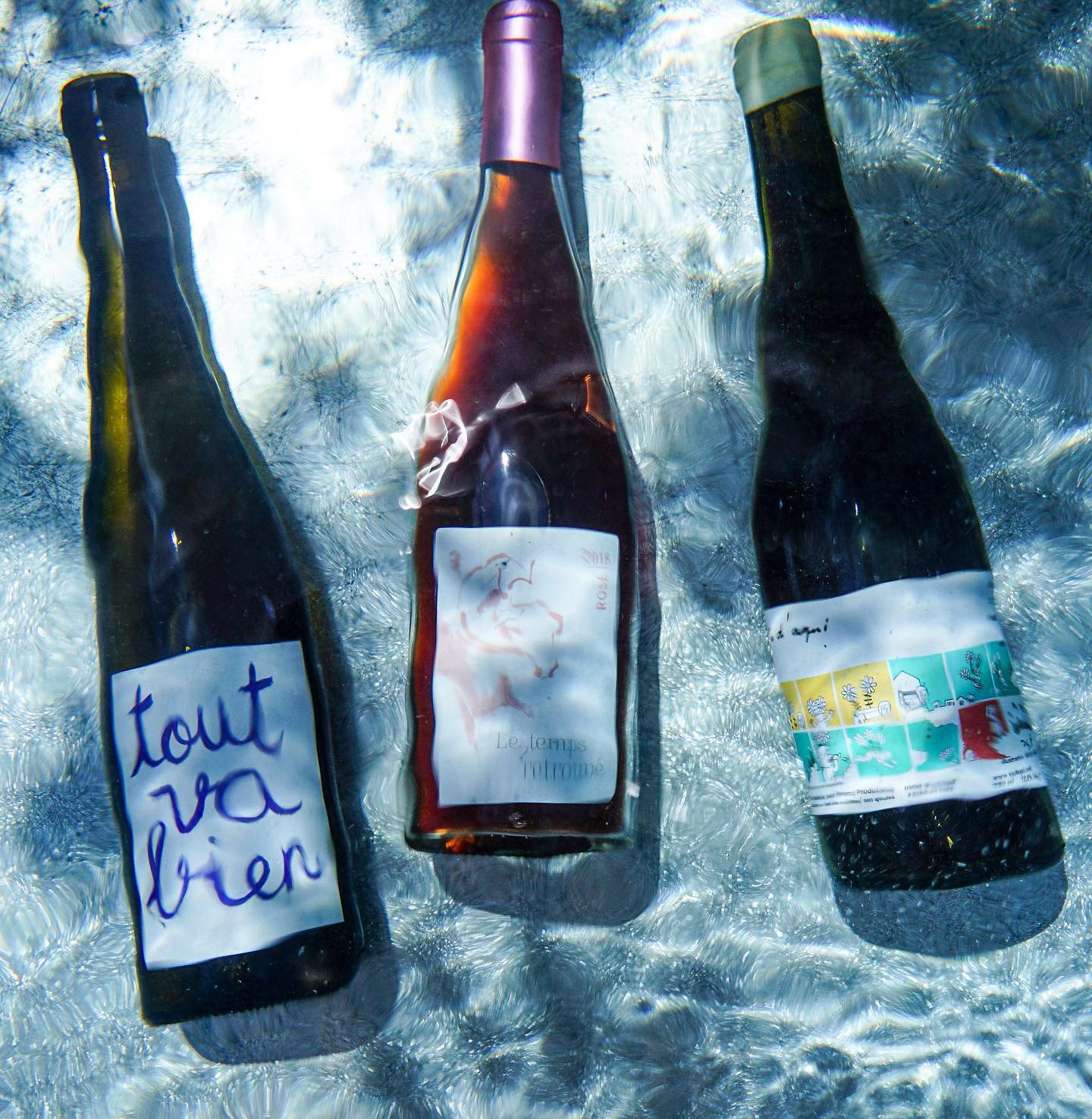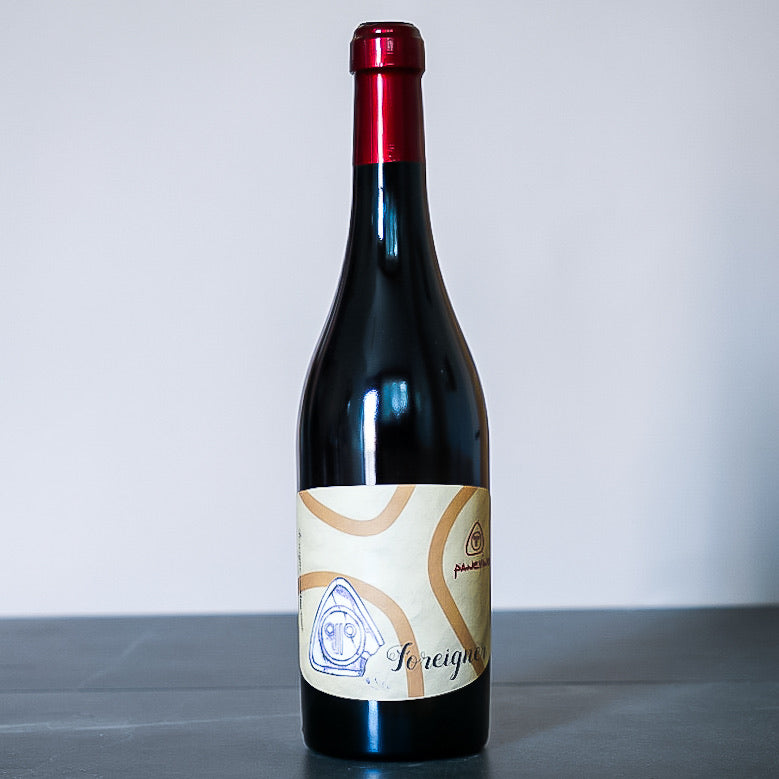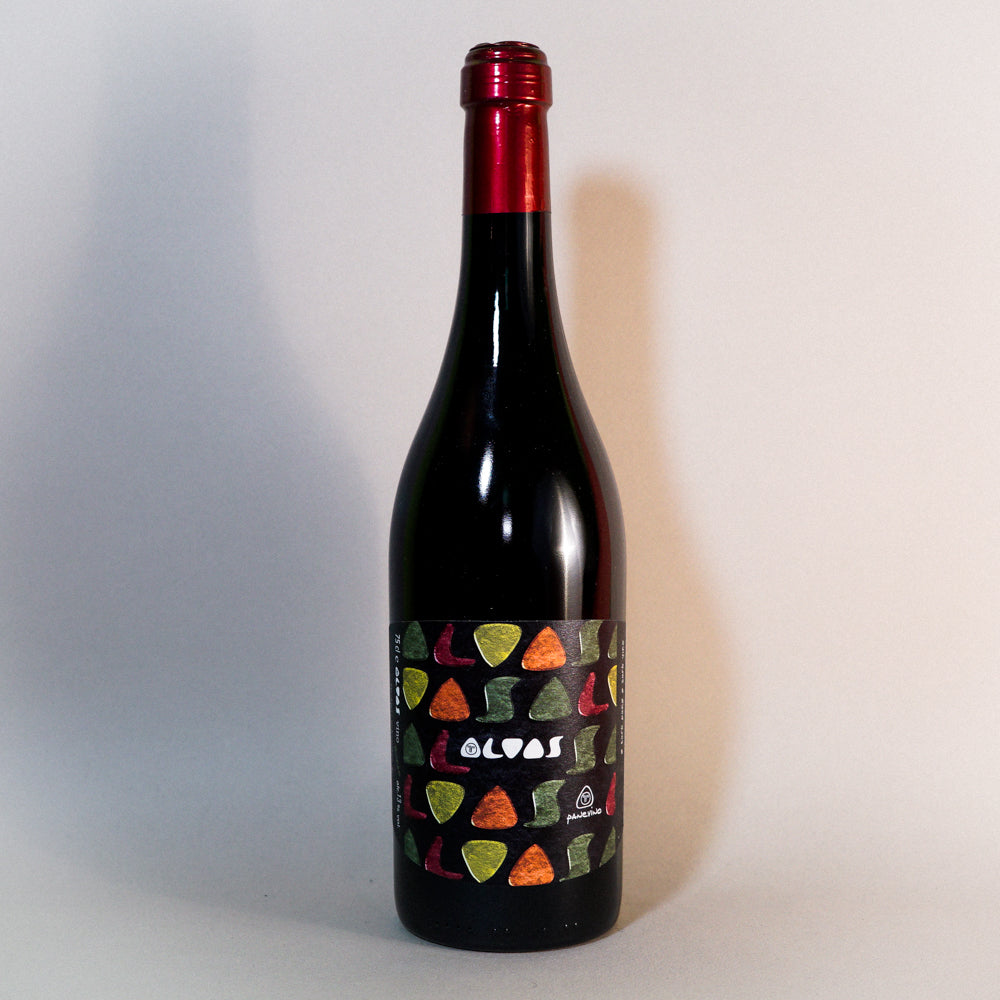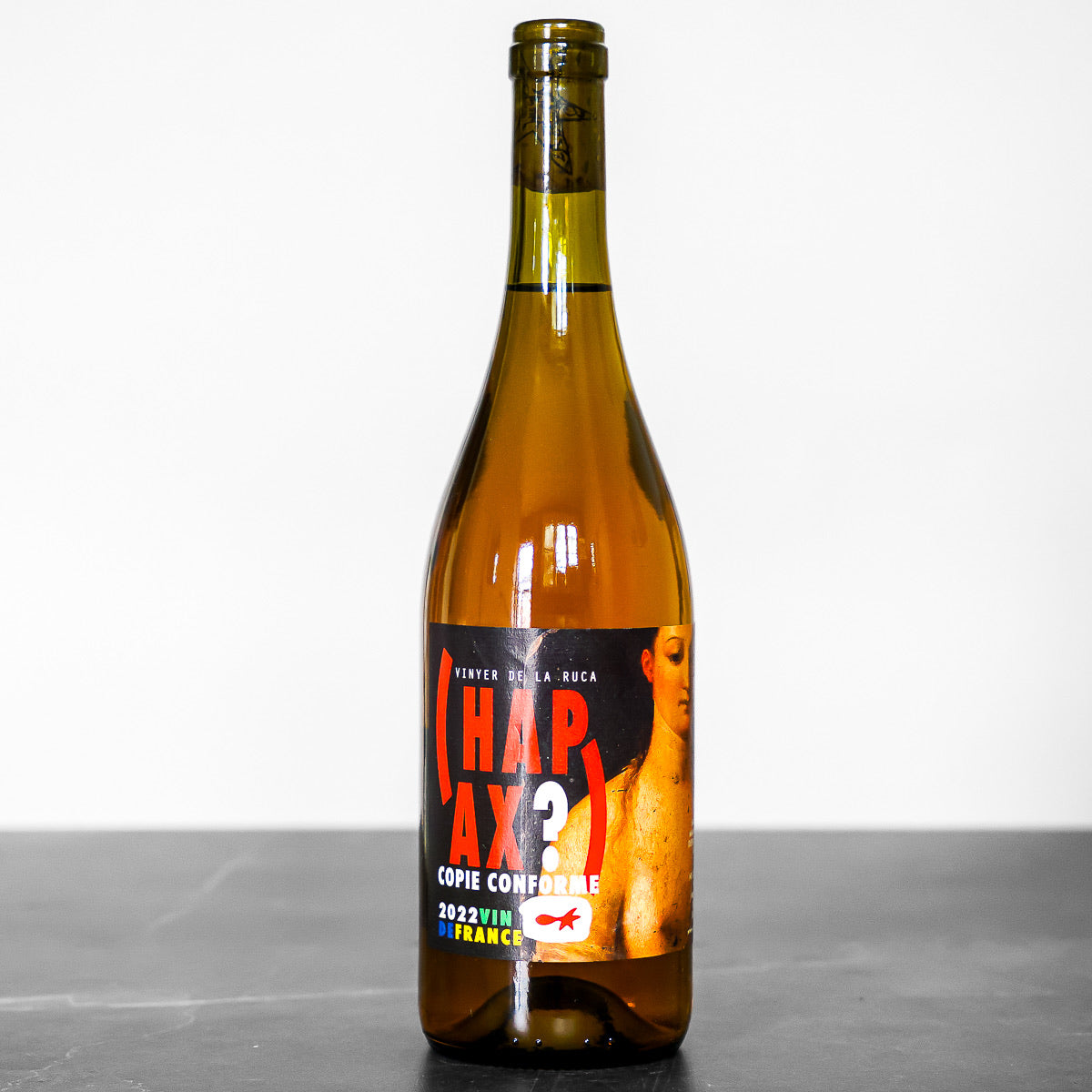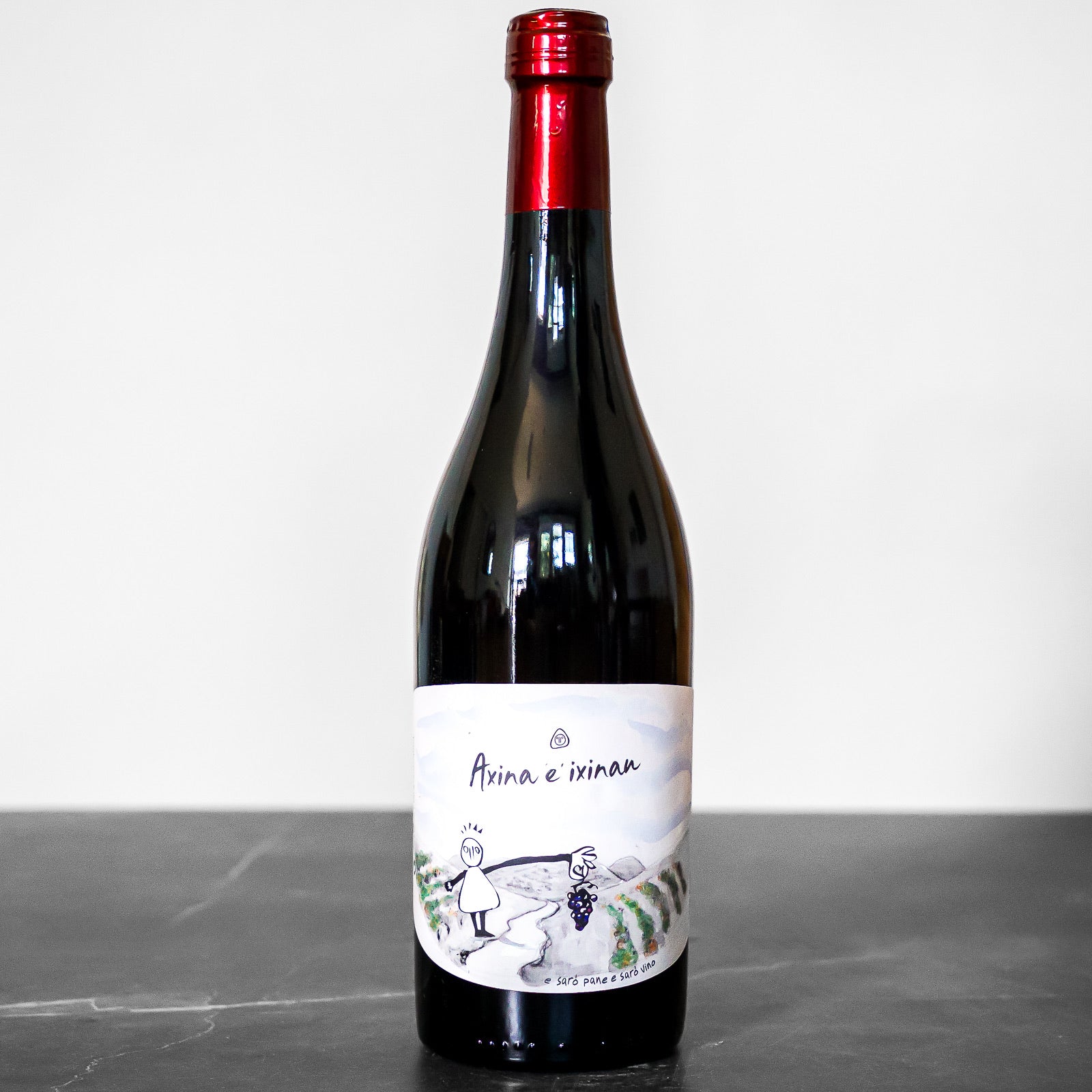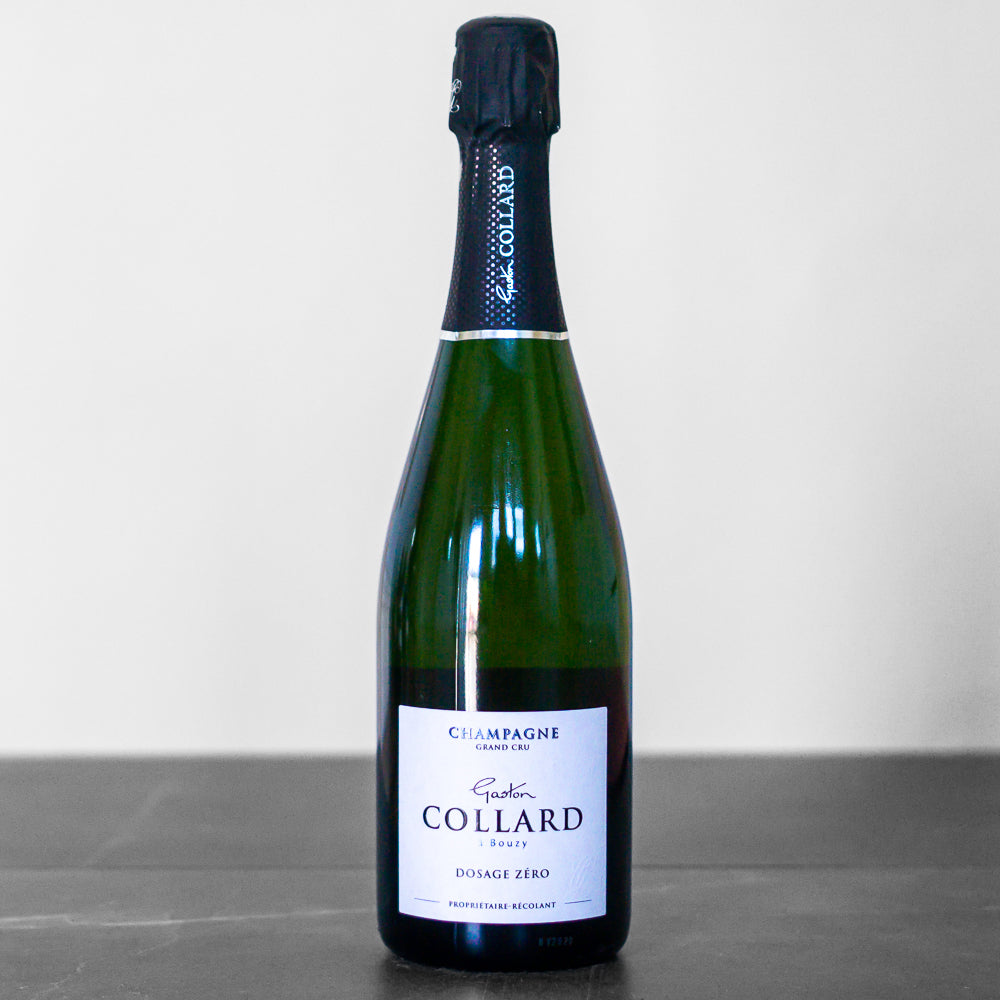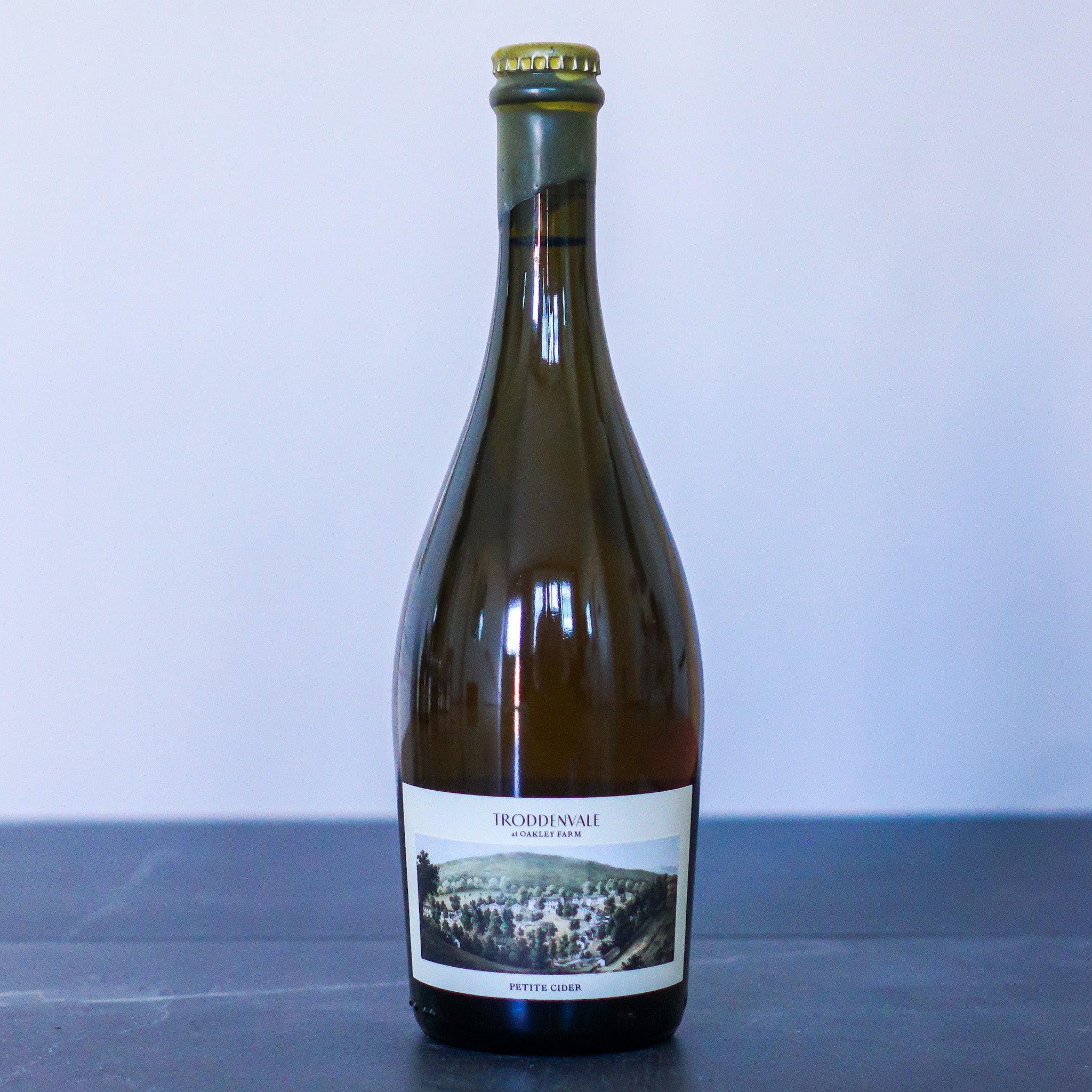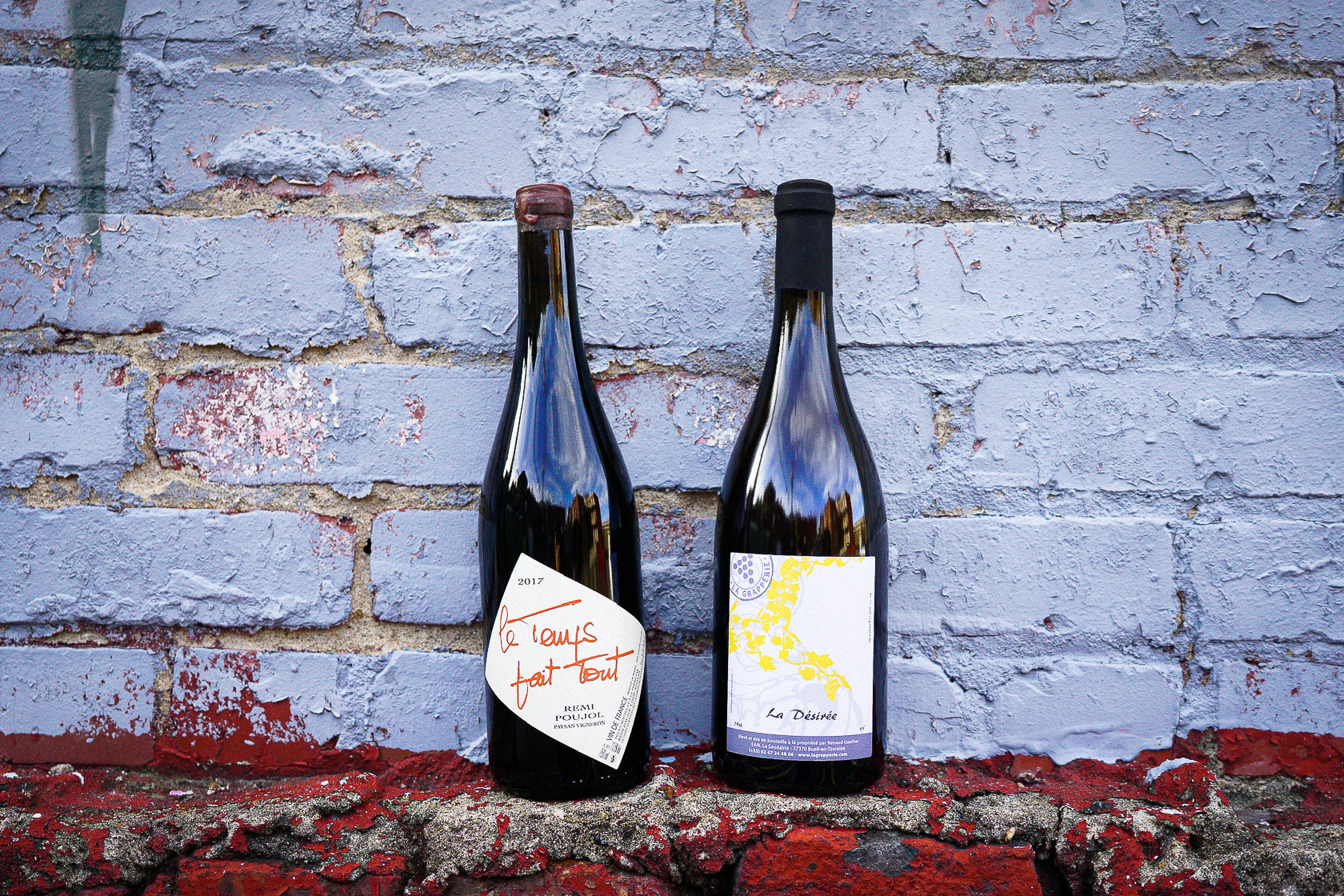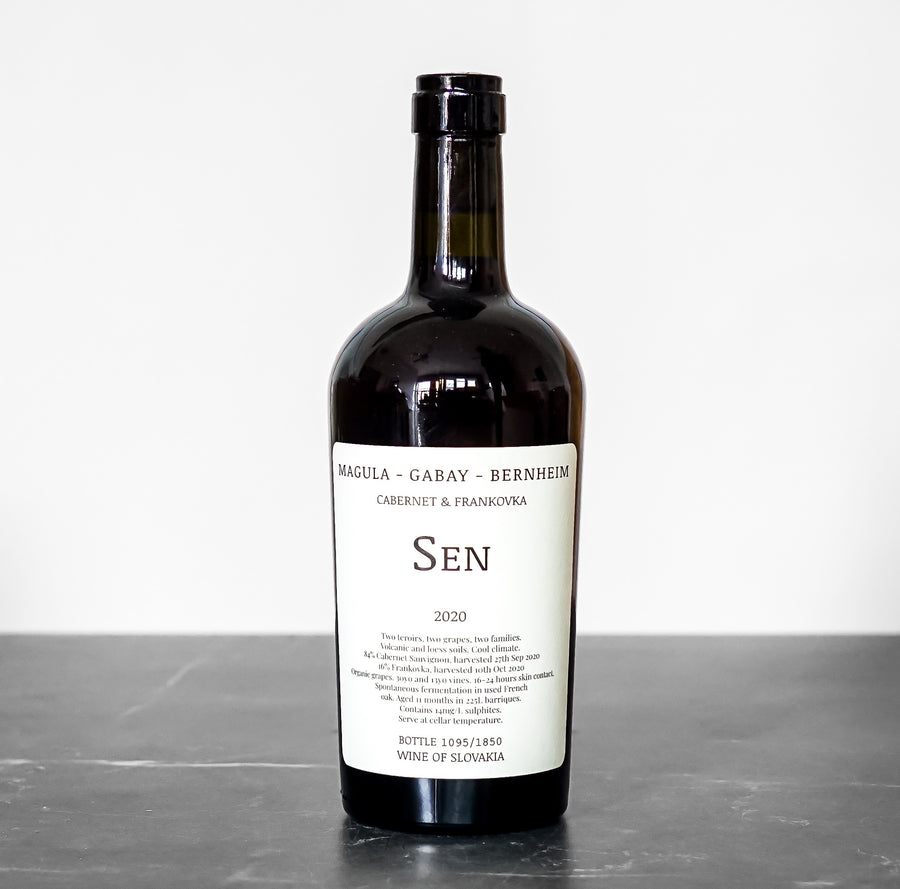Sen combines two terroirs, two grapes, two families into just 1,800 bottles a year.
The Frankovka is grown on loess, which drains particularly well, drawing the vines' roots into the ground. It is from the Magula family estate.
The Cabernet, grown on volcanic soils, comes from Slovakia's oldest certified organic vineyard, farmed by the Kušický family. We love how the vines are surrounded by wildflowers and insects throughout the spring and summer.
The Frankovka contribrutes fresh cherry fruit, with the Cabernet providing violets and blue minerality. Both contribute structure and the fresh acidity of cool-climate Slovakia.
The goal was to make a natural rosé that's dark, complex, serious, and that is a pleasure to drink on a cold winter's evening.
Magula
In the foothills of the Slovakian Malokarpatská or the Little Carpathians, Vladimír Magula and his family have been making unique and complex natural wines from local grape varieties for over a decade in their village of Suchá nad Parnou. Their dedication to regenerative farming is demonstrated through their vineyards organic certification and additional biodynamic practices, but their agricultural integrity and meticulous grape selection is evident in the finish of each glass. Decadent red Frankovka wines are prized by the estate, but their lesser-known experimental vinifications are what make a tasting with Vladimír so outstanding.
Magula is a revival of a family vineyard that was founded in 1931 by their forefather Joseph Husar. Husar was originally from the north of Slovakia, but purchased a summer house and farm outside of Trnava after visiting the region to start up an insurance office branch. Completely surrounded by vineyards, he was influenced to plant his own and learn how to raise the vines to his own accord. Instead of trying to maximize land use which would result in more manual labor, he would increase distance between vines to accommodate shoulder space for a horse and plow; although entirely practical, it was considered radical by his neighboring vignerons.
Farming collectivization started in the 50’s and within a few years most farming land, including Hussar’s, was stolen by communist cooperatives. The decisions of what happened to any one plot of land was typically depending on the co-op chair’s priorities, but in Husar’s case, the vines were destroyed and replanted with rotating cash crops like corn that were completely unsuitable for the terrain.
After the Velvet Revolution 1989, the new democratic state offered a restitution program that would validate real estate property ownership. This allowed Vladimir’s grandmother, Magdalena Magulová, who witnessed the destruction of her father’s estate, to claim her old family home. Having experienced her fathers winemaking achievements, she lived to see her son and grandson carry on her heirloom winemaking tradition. In 2007 they planted Frankovka vines on the same plot where her father’s vineyard once stood.
Vlad junior manages the cellar and vinification with the creative consultation of his mother Katarína, and Vlad senior maintains the family’s treasured vineyards between the Rose Valley and Wolf Valley of Suchá. They are currently producing upwards of 24,000 bottles all from 8 hectares of organic estate-grown-grapes.
In reflection of their forefathers unique and considerate spirit, they decided from the start to make expressive wines from thriving soil. Magula started their conversion to organic in 2012, then received their certification in 2015, and are now working towards biodynamic certification. Frankovka is the grape variety they hold closest to heart, but they equally love all of the varieties that they make a plethora of cuvees from: Hron, Rosa, Dunaj, Devin, Modry Portugal, Veltlín, Welschriesling and Traminer. Their second largest vineyard is made up of over 400 individual massale selections of Pinot Noir.
In their cellar, they make their wines with amphorae, steel tanks or oak barrels. All fermentation occurs spontaneously, no filtration or fining at any time, and the only additive used is minimal sulfur dosage prior to bottling in only some cuvees. In addition to his "Unplugged" Frankovka, where the wine is made with no means of machines, Magula recently excluded electric pumps in production and making everything exclusively by use of gravity.
Each vintage that Magula releases continues to become more developed and interesting than the last and we are interested in not only witnessing how the winemaking develops over the years, but also how these delicious wines will taste in their bottles after a decade of aging.



